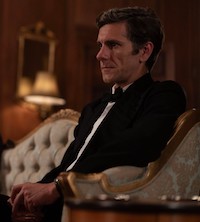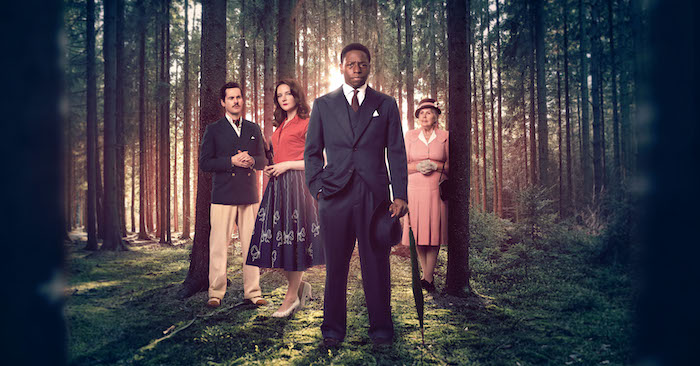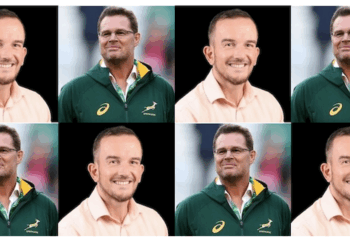Murder is Easy, currently on BritBox, is a major new adaptation of Agatha Christie’s 1939 novel of the same name.
This two-part thriller is directed by Meenu Gaur (Zinda Bhaag, World on Fire) and stars David Jonsson (Industry, Rye Lane), alongside Morfydd Clark (Lord of the Rings, Saint Maud), Mathew Baynton (Ghosts, Wonka) and Penelope Wilton (Downton Abbey, After Life).
England, 1954. On a train to London, retired policeman Fitzwilliam (Jonsson) meets the mysterious Miss Pinkerton (Wilton), who tells him that a killer is on the loose in the sleepy English village of Wychwood under Ashe.
 The villagers believe the deaths are mere accidents, but Miss Pinkerton knows otherwise – and when she’s later found dead on her way to Scotland Yard, Fitzwilliam feels he must find the killer before they can strike again. Because for a certain kind of person, murder is easy …
The villagers believe the deaths are mere accidents, but Miss Pinkerton knows otherwise – and when she’s later found dead on her way to Scotland Yard, Fitzwilliam feels he must find the killer before they can strike again. Because for a certain kind of person, murder is easy …
Here’s Mathew Baynton, who plays Dr Thomas, with more on this classic Christie thriller.
Who do you play?
Doctor Thomas is a man with a certain position in the community, which he very much enjoys. And the arrival of Fitzwilliam puts a spanner in the works as far as he’s concerned in terms of his place in the village. And that causes him some real problems…
What do you find most interesting about your character?
To say that might spoil things! Without giving too much away… this is a man who cares really deeply about his status and a man who is very privileged, and any challenge to that privilege he’s going to get very defensive about. And he may be interested in certain theories that I think are an armour for him to defend his status. One of the most interesting things for me is trying to understand why a person like Doctor Thomas could be drawn to that, and why a person could truly believe in it.
Is it accurate to say that you enjoyed the costumes?
I mean, the costumes are just fantastic. It’s rare in modern life that you get an excuse to be tailored and I’d get a few looks today if I walked around with high-waisted trousers and the rest of it. But I can get my kicks out of it when I’m being filmed in an Agatha Christie. It’s a good excuse.
Why do you think small, quaint British towns and villages make such a good setting for a murder mystery?
I think the picture perfect little British village suggests serenity and order, and so that really lends itself to the idea of murder disrupting all of that. Causing chaos. I think there’s something about the fact that it’s so pretty and organised, and then something chaotic happens in the middle of it.
And why do you think mystery stories and tv shows prove so enduringly popular?
I’m going to parrot a theory that a friend of mine told me and take credit for it, which is that there’s something really comforting about the fact that you watch the mystery, often a terrible thing, get solved, and then we can all sleep easily. The idea that someone will come along, figure it all out, wrap it all up in a bow, the bad guy goes away and we can all go to bed and tuck ourselves in and feel like the world is put to rights. I think that’s the story people like because it has such closure to it and comfort.
Murder is Easy also examines the British class system and shows how the social roles were at the time, doesn’t it?
I think it’s easy to forget that each new generation does not arrive with an in-built hard drive, pre -loaded with an understanding of social history or history of anything in fact. And so stories are powerful and important. Not just in a glib way, but this is how generations of people come to understand the world that they live in.
“For a lot of people, their exposure to history is through dramatic storytelling on the screen. So it is good that those elements are woven into the stories that we tell because, well, what’s the famous quote? Those who forget history are doomed to repeat it. I’ve paraphrased it very badly, but that’s why it’s important to shine light on all areas of history, but particularly on those elements where we can revise history – and when I say ‘revise’, I don’t mean in terms of changing history, but in terms of getting it more correct. Many people were airbrushed out of history because they weren’t the ones who got to write it.”














